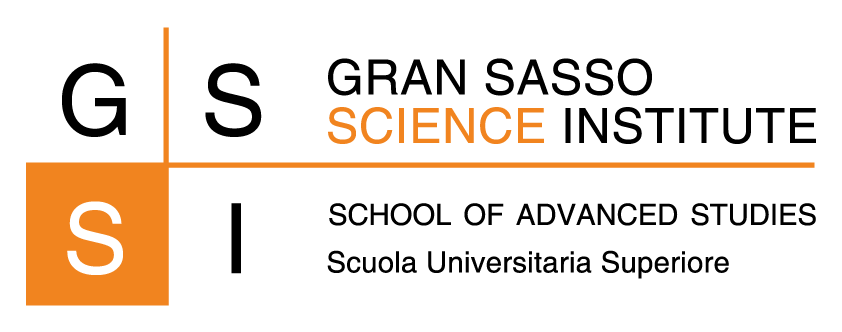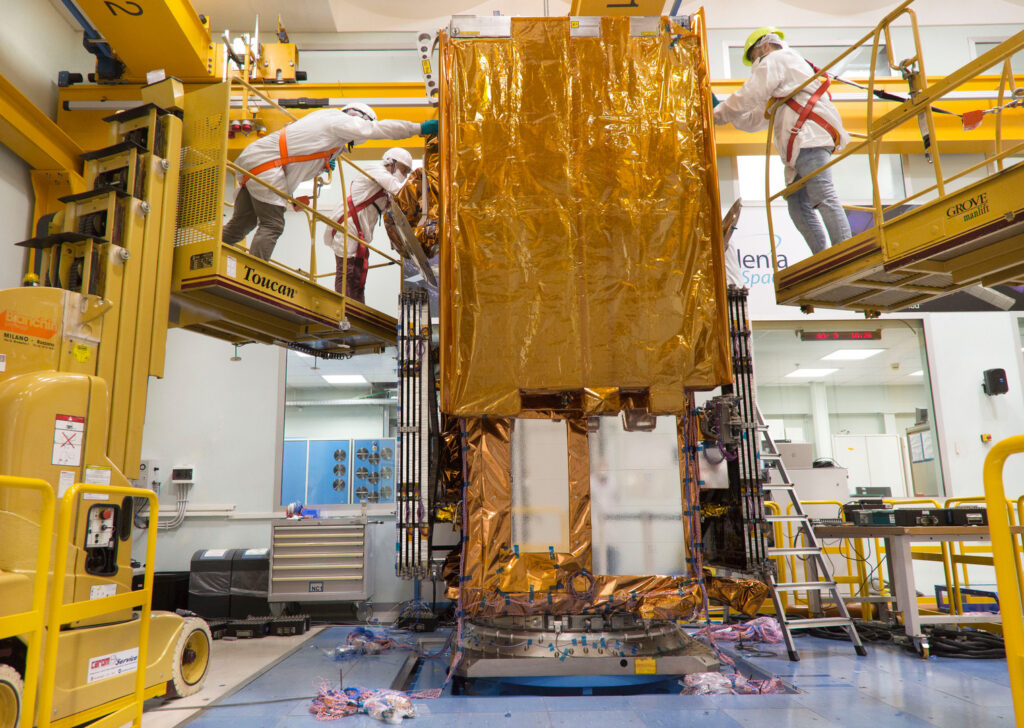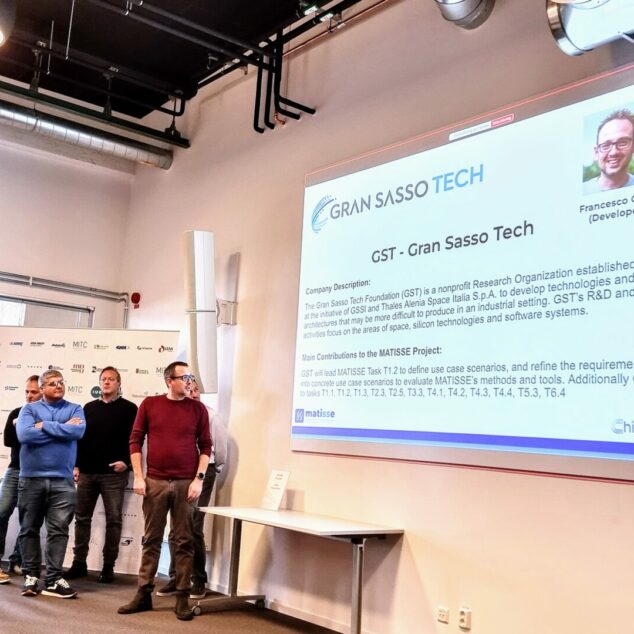GST is a reference facility for the scientific community to develop small satellites and to design and manage space research missions. GST owns the modular and flexible platform architecture for Mini/Micro Satellites applications based on the Modular and Multi Function hermo-mechanical chassis (2MF/NIMBUS), managed as an "open hardware architecture" to encourage widespread innovation by multiple research centers. Ownership of the 2MF architecture, combined with access to the Thales Alenia Space Italy infrastructure, makes the Foundation a natural candidate to play a leading role in enabling universities and research centers to develop low-cost space science missions.
GST develops methodologies to support the whole radiation hardening process and qualification of "Components Off The Shelf '' as part of an integrated supply chain from electronic component manufacturers to irradiation facilities to facilitate a more widespread use of COTS components and modules for space and scientific applications.
GST contributes to establishing a national supply chain for space-based quantum technologies. The development of quantum computing and communications will lead to the creation of quantum networks in which space satellites will provide an important role as global connectivity nodes. The 2MF/NIMBUS architecture is a natural candidate for launching a QKD (Quantum Key Distribution) communications satellite demonstrator, in synergy with the ongoing development of local quantum fibre networks.
GST conducts advanced research and develops technologies based on Artificial Intelligence and Advanced Software to address the fundamental challenges of the digital society. Starting with the space industry (e.g. to manage the quality of satellite data and minimize downstream through the use of in-flight computers), also with the additional benefit of transferring to SMEs algorithms and AI applications developed in international research projects. The ubiquitous and pervasive nature of computers and sensors is leading to a future where the surrounding environment appears as a seamless blend of physical and virtual entities. GST develops technological assets to design and manage systems where physical and virtual interact reliably and efficiently.
GST develops and deploys digital twins for scientific, engineering and manufacturing efficiency. A digital twin for the automated adjustment, analysis and optimization of the satellite system of the 'Crystal Eye' scientific mission, based on GST’s proprietary 2MF architecture, is currently under development. The Space and Earth Innovation Campus (SEIC) under construction in L'Aquila, will include a R&D laboratory for the development of digital twins, designed to operate in "digital continuity" with the industrial facilities of Thales Alenia Space Italy according to ESA standards, in order to enable concurrent activities of several European research and industrial production centers. Through the network of GST partners, the concurrent engineering platforms can be applied to various industrial sectors necessitating Industry 4.0 transformation.
GST develops and scales applications for monitoring and managing Earth’s regions by integrating data from satellite, UAV (unmanned aerial vehicle) and terrestrial sensors. Earth observation via satellite sensors plays a key role in the development of agriculture 4.0, environmental monitoring, air/ sea/automotive traffic control, logistics, prevention and management of disasters (environmental, social, health). The development of innovative applications in which downstream data from satellites are integrated with data from UAVs and terrestrial sensor systems (enabled by 5G or IoT technologies) requires advanced skills in A.I., big data analysis, mathematical modeling, and software engineering.
GST develops technological solutions for research in the field of Cultural Heritage in collaboration with Research Institutions, Governmental Agencies, Museums and Art Schools. GST develops technological solutions for research in the field of Cultural Heritage in collaboration with Research Institutions, Governmental Agencies, Museums and Art Schools. For the Space and Earth Innovation Campus in L'Aquila, an advanced prototype of a compact low-energy particle accelerator (MACHINA) is being developed through a collaboration between INFN, CERN and GSSI to apply ion beam analysis (IBA) techniques to study components (e.g. pigments, metal alloys, decay or restoration materials) present in artistic and historic manufacts.
GST develops methods and service infrastructures to evaluate and manage the social and environmental impact of new technologies generated and to steer technological development towards ethical outcomes, starting from the selection of research lines to the conditions of new technology commercialization. In addition to evaluating its own projects, GST supports research entities, companies and public administrations in assessing and managing the impacts of their activities.




